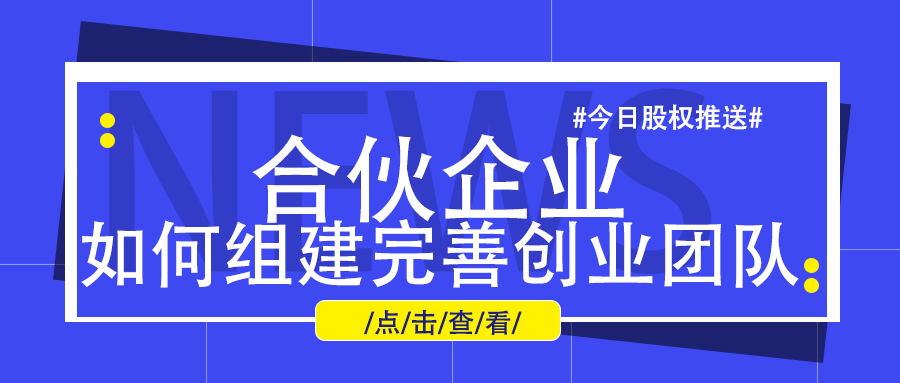

新聞資訊NEWS AND INFORMATION
家族企業(yè)代際傳承,如何進行股權架構設計,?
發(fā)布時間:2024-04-23 來源:http://zyvd.cn/
在家族企業(yè)中,,傳承是一個長期的過程,。其中,家族企業(yè)的股權規(guī)劃,,不僅是企業(yè)設立中的重要事項,更對家族企業(yè)的發(fā)展與傳承具有重大影響,。
In family businesses, inheritance is a long-term process. Among them, the equity planning of family businesses is not only an important matter in the establishment of enterprises, but also has a significant impact on the development and inheritance of family businesses.
一,、設立合理的股權架構,穩(wěn)固公司的控制權,,隔離經營風險,。
1、 Establish a reasonable equity structure, consolidate the company's control, and isolate operational risks.
1,、控制權設計,,分股不分權
1. Control Design, Divided but Not Divided
首先需要厘清“控制權”和“控股權”的區(qū)別。企業(yè)家族內傳承的時候一定要確定領導企業(yè)未來發(fā)展的“家族領頭人”,,讓其牢牢掌握企業(yè)的控制權,。在平衡多個繼承人利益分配的時候,可以通過設立家族控股公司,、設立有限合伙企業(yè),、“金字塔”股權架構布局,簽訂《一致行動人協議》,、AB股等方式做到分股不分權,,保證控制權不被分散,核心繼承人能始終掌控企業(yè)的未來發(fā)展,。
Firstly, it is necessary to clarify the difference between "control" and "controlling equity". When inheriting within a business family, it is necessary to identify the "family leader" who will lead the future development of the enterprise, so that they can firmly grasp the control of the enterprise. When balancing the distribution of interests among multiple heirs, it is possible to establish a family holding company, a limited partnership, a "pyramid" equity structure layout, sign a "concerted action agreement", AB shares, and other methods to achieve non separation of shares and ensure that control is not dispersed, and the core heirs can always control the future development of the enterprise.
2,、建立防火墻,隔離經營風險
2. Establish a firewall to isolate business risks
風險隔離是指企業(yè)股權頂層架構設計需要實現企業(yè)風險與股東個人風險相互隔離的效果,。家族企業(yè)可以設立家族控股公司或者集團公司,,來控股實體經營公司,形成“家族成員—家族控股公司—實體經營公司”的架構模式,??毓晒静粡氖氯魏螌嵸|經營活動,從而避免企業(yè)經營風險影響到家族資產,。誠然,,若公司資產達到較大的規(guī)模,還能采取設立家族信托工具,、搭建“VIE”紅籌架構模式等用于保障股東的財產安全,。
Risk isolation refers to the design of the top-level equity structure of a company that needs to achieve the effect of isolating corporate risks from individual shareholder risks. Family businesses can establish family holding companies or group companies to control entity operating companies, forming a structural model of "family members family holding companies entity operating companies". The holding company does not engage in any substantial business activities to avoid business risks affecting family assets. Indeed, if the company's assets reach a large scale, it can also adopt measures such as establishing family trust tools and building a "VIE" red chip structure model to ensure the property safety of shareholders.
3、進行家族股權信托
3. Conducting a family equity trust
家族股權信托是將家族成員的股權轉移到專門的信托機構,,成為信托財產,,家族成員成為信托受益人,。信托機構管理股權,負責股權的保值增值,,為家族受益人發(fā)放分紅收益,。信托可以根據家族企業(yè)實際情況和家族成員需求,設定不同的代際傳承方案,,同時雖然股權轉入信托,,但家族仍然可以通過信托合同和其他協議保留對重大經營決策的發(fā)言權。這種方式可以維護家族團結,,避免內部爭端,,但同時也面臨著不菲的代理費用以及利益流失和對企業(yè)控制權的削弱。
Family equity trust is the transfer of the equity of family members to specialized trust institutions, becoming trust property, and family members becoming beneficiaries of the trust. Trust institutions manage equity, are responsible for the preservation and appreciation of equity, and distribute dividend income to family beneficiaries. Trusts can set different intergenerational inheritance plans based on the actual situation of the family business and the needs of family members. At the same time, although equity is transferred to the trust, the family can still retain the right to speak on major business decisions through trust contracts and other agreements. This approach can maintain family unity and avoid internal disputes, but at the same time, it also faces significant agency costs, loss of benefits, and weakening of corporate control.
二,、完善家族治理體系,,使家族治理制度化合規(guī)范化。
2,、 Improve the family governance system and institutionalize and standardize family governance.
在參與控股的家族成員較多的情況下,,可以設立家族股權管理辦公室/委員會,由家族內有威望的人員出任委員會成員,,完善委員會議事規(guī)制,,負責企業(yè)的重大事項,用企業(yè)章程規(guī)定下來,,提升家族內的凝聚力,,增強家族對企業(yè)的控制力。
In cases where there are a large number of family members participating in the controlling stake, a family equity management office/committee can be established, with respected members of the family serving as committee members. The committee will improve its rules and regulations, be responsible for major matters of the enterprise, and be stipulated in the company's articles of association to enhance the cohesion within the family and enhance the family's control over the enterprise.
如李錦記的家族委員會(FC)的傳承模式,,家族委員會包括李惠森的父親(第三代傳人李文達),、母親以及5個兄弟姐妹共7位成員,家族委員會每三個月開一次歷時4天的會議,,建立溝通平臺,,解決大大小小的問題。家族委員會的建立有利于明確家族系統(tǒng)和企業(yè)系統(tǒng)的分界線,,并為那些不在企業(yè)工作也不擁有所有權的家族成員提供表達意見的機會,,大大降低因家族關系不和而對企業(yè)經營、政策可能造成的不良影響,。
For example, the inheritance model of Li Jinji's Family Committee (FC), which includes Li Huisen's father (Li Wenda, the third generation successor), mother and five brothers and sisters, has seven members. The FC holds a four-day meeting every three months to establish a communication platform and solve problems of all sizes. The establishment of a family committee is conducive to clarifying the boundary between the family system and the business system, and provides opportunities for family members who do not work in the company or have ownership to express their opinions, greatly reducing the potential negative impact on business operations and policies caused by family conflicts.

三,、培養(yǎng)接班人與引入職業(yè)經理人同步計劃進行,并預留股份推行以股權激勵為核心的合伙人制度,。
3,、 The training of successors and the introduction of professional managers are planned synchronously, and reserved shares are implemented to implement a partnership system with equity incentives as the core.
家族企業(yè)應當重視對于接班人的培養(yǎng),但能力的養(yǎng)成不是一朝一夕就能夠達成的。如果在繼承人范圍內沒有合適的接班人選,,要積極引入職業(yè)經理人,,不斷吸納人才,尋求各方面都能征善戰(zhàn)的人才,,推行股權激勵為核心的合伙人機制,,保證企業(yè)的穩(wěn)定持續(xù)發(fā)展。
Family businesses should attach importance to the cultivation of successors, but the cultivation of abilities cannot be achieved overnight. If there is no suitable successor within the scope of inheritors, it is necessary to actively introduce professional managers, continuously attract talents, seek talents who can compete well in all aspects, implement a partnership mechanism with equity incentives as the core, and ensure the stable and sustainable development of the enterprise.
如碧桂園的事業(yè)合伙人激勵機制就是很典型的家族傳承案例,。其推行的三階段事業(yè)合伙人機制吸引了大批能力強,、經營豐富的內外部優(yōu)秀員工。這些優(yōu)秀員工彌補了碧桂園接班人資歷合經驗不足的缺陷,,順利實現了接班。
The incentive mechanism for business partners in Country Garden is a typical case of family inheritance. The three-stage business partnership mechanism it implements has attracted a large number of capable and well managed internal and external outstanding employees. These excellent employees have made up for the lack of qualifications and experience of the successors at Country Garden, and successfully achieved their succession.
四,、完善企業(yè)內部管控和風險防范能力
4,、 Improve internal control and risk prevention capabilities of enterprises
隨著越來越多的人員加入企業(yè),股權架構愈加開放,,公司管控和風險防范能力都急需進行升級和完善,。
With more and more personnel joining the enterprise, the equity structure is becoming more open, and the company's control and risk prevention capabilities urgently need to be upgraded and improved.
如在美的創(chuàng)始人退休之前,美的集團就著手建立精細化的集團管控體系,,設計“股東會-董事會-經營管理層”三權分立規(guī)則,,明確不同層級對不同事項的權利合義務。并在集團創(chuàng)始人宣布“退休”后,,將企業(yè)管理大權交給職業(yè)經理人方洪波,。美的集團在方洪波的帶領下市值突破5000億元人民幣。由此可見,,在家族企業(yè)二代不接班的情況下,,通過規(guī)范的集團管控和“股東會-董事會-經營管理層”三權分立同樣可以較好地實現企業(yè)的傳承。
Before the retirement of the founder of Midea, Midea Group began to establish a refined group control system, designing a separation of powers rule of "shareholder meeting, board of directors, and management", clarifying the rights and obligations of different levels on different matters. And after the founder of the group announced his retirement, he handed over the power of enterprise management to professional manager Fang Hongbo. Under the leadership of Fang Hongbo, Midea Group's market value has exceeded 500 billion yuan. From this, it can be seen that in the case where the second generation of family businesses does not take over, the inheritance of the enterprise can also be better achieved through standardized group control and the separation of powers among the shareholders, board of directors, and management.
本站聲明
本網站為非營利性網站,旨在宣揚股權知識,交流職業(yè)學習心得,。網站內部分文章來自其它網站,,只做交流學習之用。相應的權力均屬于原權 力人,,如權利人認為不妥,,請來電來函說明,本網站隨既停止或使用,,謝謝合作,! 13698613138
13698613138
微信公眾號

掃碼獲知更多知識

抖音二維碼

截屏,微信識別二維碼